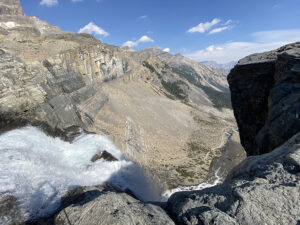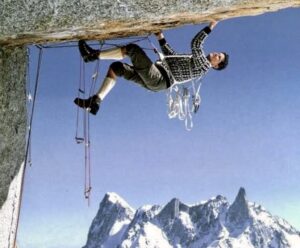Popular Rerun
“An interesting observation of serious risk-taking sports people is that despite frequent near misses and accidents, they continue to participate in adventure sports. This persistence in the face of trauma is in my view quite unique.”
You may recall Bolivian/New Zealand MD Erik Monasterio’s post at Explorersweb in 2007 comparing base jumpers to climbers and others in terms of the risks of adventure sports.
Monasterio sent the article to Explorersweb on account of then raging debates about Everest and Nangpa La, where people had died before the eyes of pretty cold witnesses.
Comparing behaviours and brain chemicals, the doctor looked into patterns and correlations.
Specializing in Forensic Psychiatry and a mountaineer himself, Erik found some interesting statistics, such as that 1/3 of killed base jumpers (a sport that actually started almost 40 years ago) died of other adventures, drugs and – more surprisingly perhaps – suicide.
Not only do they gravitate toward a mixed bag of risky activities, the doc also found that mountaineers and their likes who experience or witness trauma are less prone to Post Traumatic Stress Disorder and other mood or anxiety problems, than regular folks or even soldiers and firefigheters.
In light of recent base accidents, we’ve dug out the article for you.
Live and let die on Everest: A study by Forensic Psychiatrist Dr Erik Monasterio






